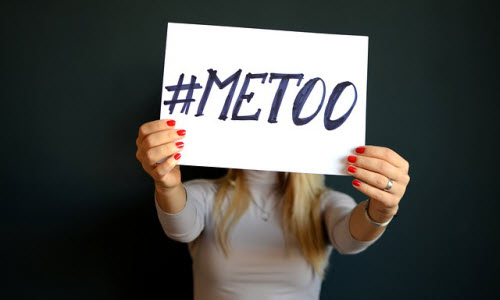It was around a year ago that the initial bombshell articles about Harvey Weinstein hit. All of a sudden — like an overnight “success” that took years for anyone to notice even though the reports had been there all along — sexual harassment and #MeToo got attention.
Weinstein was gone. Over the next 18 months, of 414 high-profile executives accused, 190 were fired or left their jobs and another 122 were “put on leave, suspended or are facing investigations,” according to Time’s count.
Don’t bother to cheer; there are signs that things are rolling back to the old normal.
CBS studiously tried to avoid questions about sexual misconduct allegations toward CEO Les Moonves.
And then there are the comeback plans of Bill O’Reilly, Matt Lauer, and Mario Batali. Louis C.K. has already been back on stage doing standup.
If these people who faced major media attention are thinking about a return to the public spotlight, you can bet that many less-notable executives are already looking for their next landing spot. Even Travis Kalanick, co-founder and former CEO of Uber, has already moved beyond the toxic culture he helped create and that severely undermined the company. He’s already joined the board of a medical software company.
For business journalists, this is a time to double down on coverage and put more attention on the subject. Sexual misconduct and harassment, in addition to social, moral, and criminal concerns, issues of commerce. Executives wield tremendous power and have major effects on the ability of their companies to compete, succeed, and deliver value to shareholders, employees, and the communities in which they operate.
Wall Street investors have already begun to institute Weinstein clauses that predicate merger and acquisition deals on the good behavior of executives in a company. Part of the value of these transactions (10 percent frequently) goes into an escrow fund. Cause public scandal or get named in a sexual harassment suit and buyers may recoup part or all of it.
The charges against Moonves have already resulted in a shareholder class action suit, when the stock dropped in value. The ultimate results of any investigation or lawsuits could affect Viacom’s desire to reacquire the network.
All issues of sexual propriety are clear subjects of business reporters. This topic must become part of the standard topics reporters routinely investigate and question as much as strategic plans, competition, and financial performance are. To let it fall to the wayside as some “fad” would be a disservice to the topic of business and readers. It should become a question asked of executives regularly: What issues of sexual harassment is your company currently and recently dealing with?











